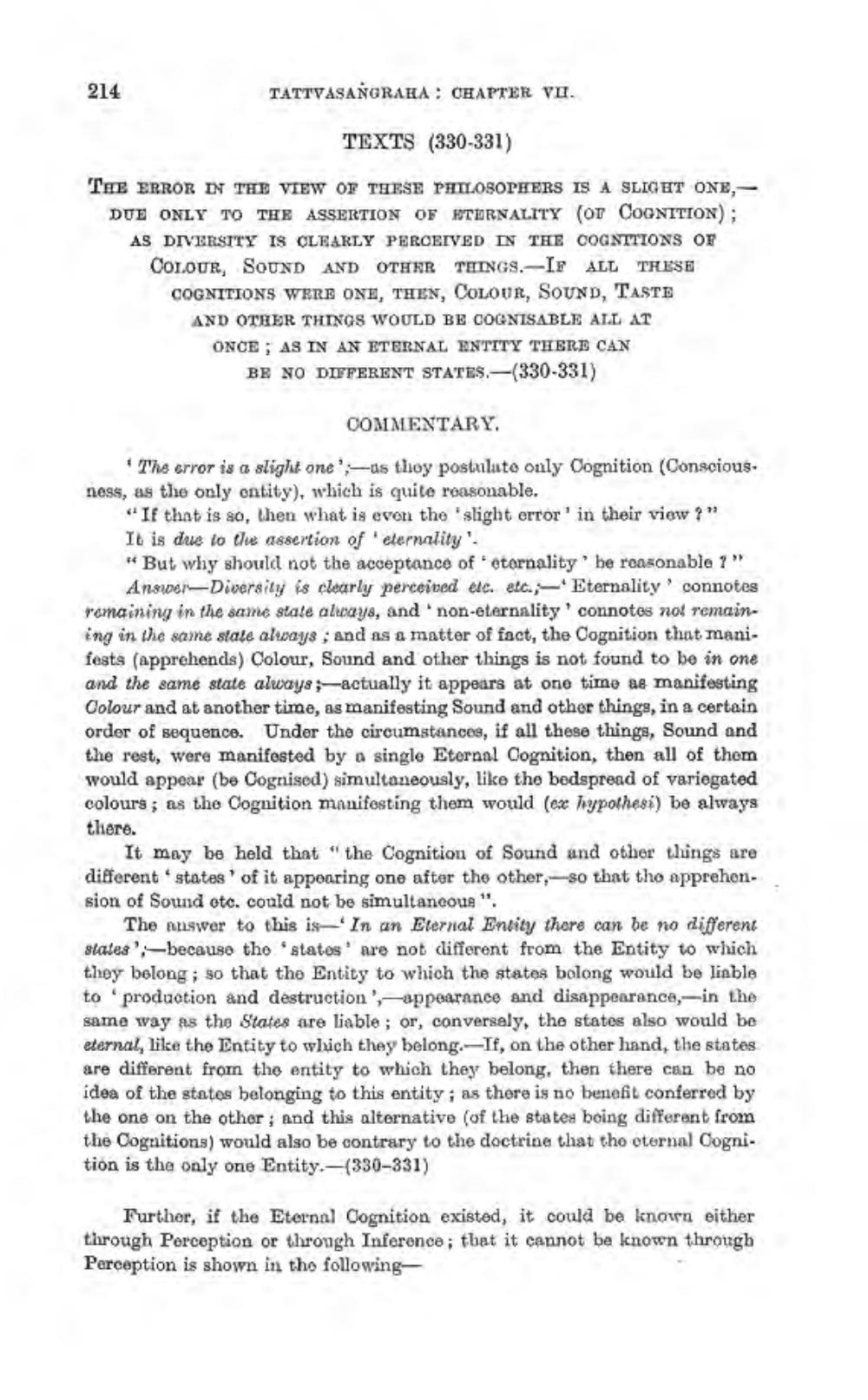________________
214
TATTVASANGRAHA : CHAPTER VI.
TEXTS (330-331)
TAE ERROR IN THE VIEW OF THESE PHILOSOPHERS IS A SLIGET ONE,DUE ONLY TO THE ASSERTION OF ETHERNALITY (OT COGNITION); AS DIVERSITY IS CLEARLY PERCEIVED IN THE COGNITIONS OF COLOUR, SOUND AND OTHER THINGS.-IF ALL THESE COGNITIONS WERE ONH, THEN, COLOUR, SOUND, TASTE AND OTHER THINGS WOULD BE COGNISABLE ALL AT ONCE ; AS IN AN ETERNAL ENTITY THERE CAN
BE NO DIFFERENT STATES.-(330-331)
COMMENTARY.
The error is a slight one',-as thoy postulato only Cognition (Conscious. ness, as the only entity), which is quite reasonable.
"If that is so, then what is even the slight error' in their view ?" It is due lo llue assertion of eternality' * But why should not the acceptance of eternality' be reasonable ?"
Answer-Diversity is clearly perceived elc. etc.,— Eternality connotes remaining in the same state always, and non-eternality connotes not remaining in the same state always, and as a matter of fact, the Cognition that mani. fests (apprehends) Colour, Sound and other things is not found to be in one and the same state always actually it appears at one time as manifesting Colour and at another time, as manifesting Sound and other things, in a certain order of sequence. Under the circumstances, if all these things, Sound and the rest, were manifested by a single Eternal Cognition, then all of them would appear (be Cognised) simultaneously, like the bedspread of variegated colours; as the Cognition manifesting them would (ex hypothesi) be always there.
It may be held that "the Cognition of Sound and other things are different states of it appearing one after the other,--so that tho apprehension of Sound otc. could not be simultaneous".
The answer to this is 'In an Eternal Entity there can be no different states' -because the states are not different from the Entity to which they belong ; so that the Entity to which the states bolong would be liable to production and destruction',-appearance and disappearance in the same way as the States are liable; or, conversely, the states also would be eternal, like the Entity to which they belong.--If, on the other hand, the states are different from the entity to which they belong, then there can be no idea of the states belonging to this entity; as there is no benefit conferred by the one on the other; and this alternative (of the states being different from the Cognitions) would also be contrary to the doctrine that tho oternal Cogni. tion is the only one Entity.-(330-331)
Further, if the Eternal Cognition existed, it could be known either through Perception or through Inference; that it cannot be known through Perception is shown in the following




